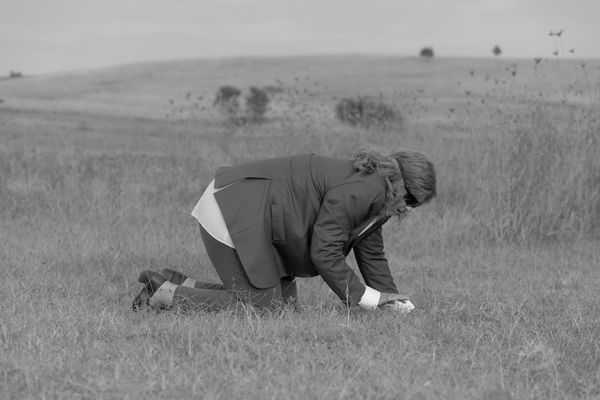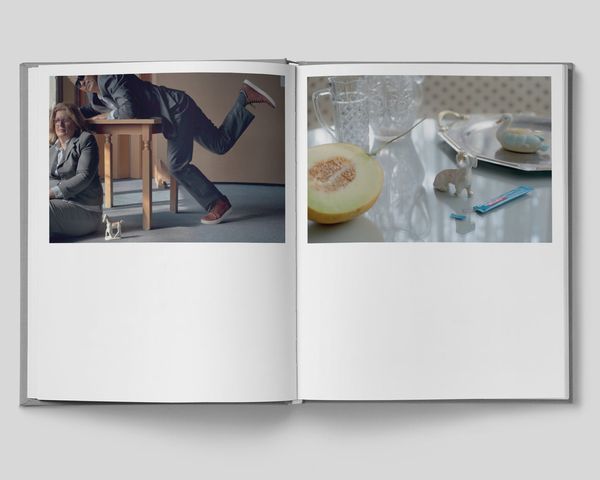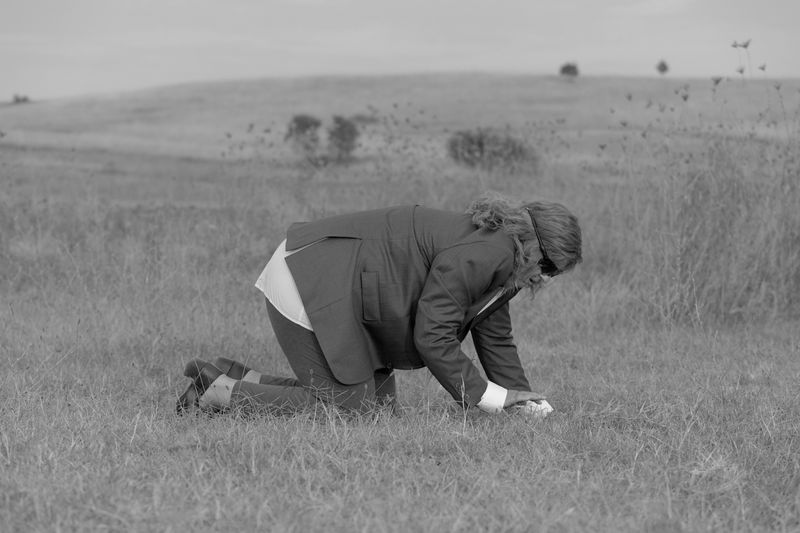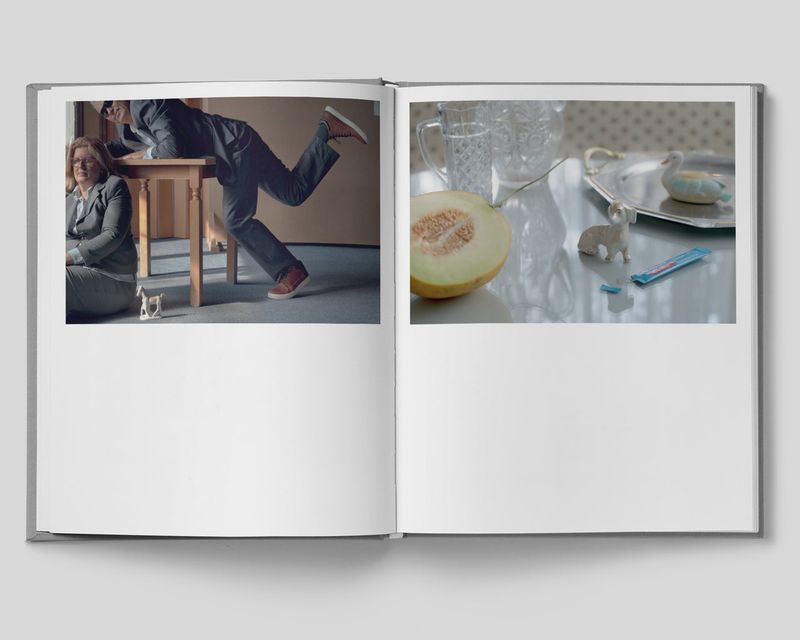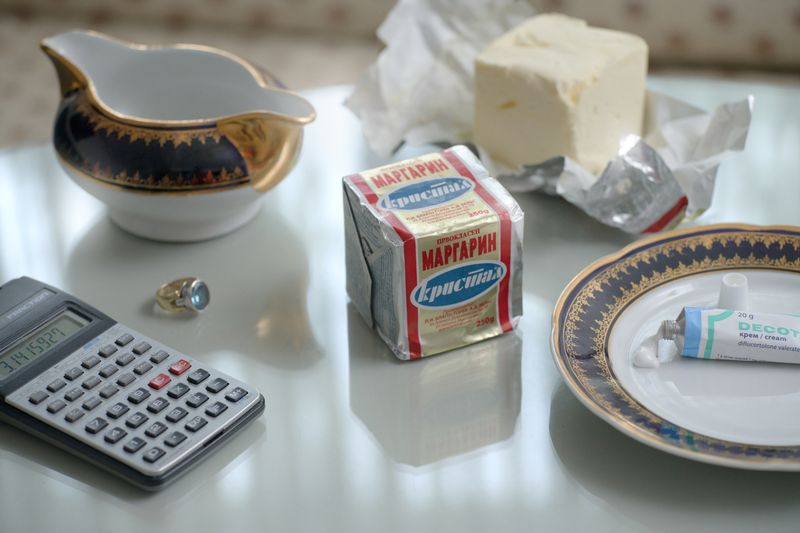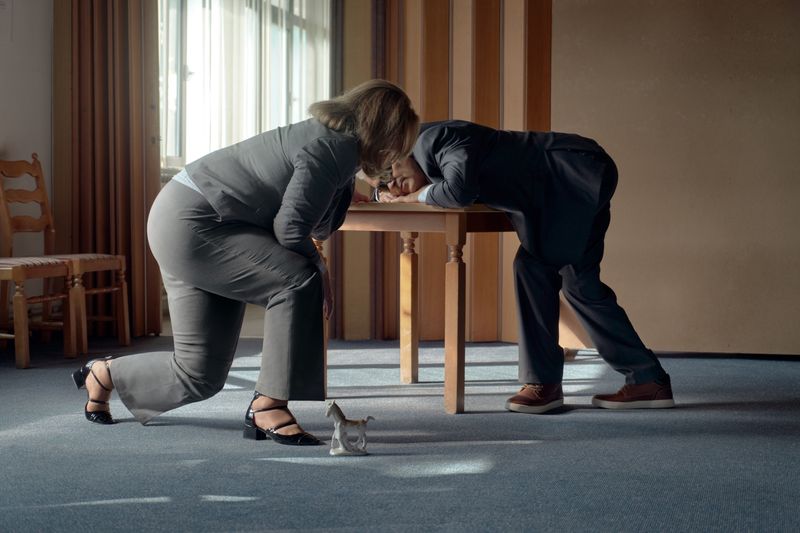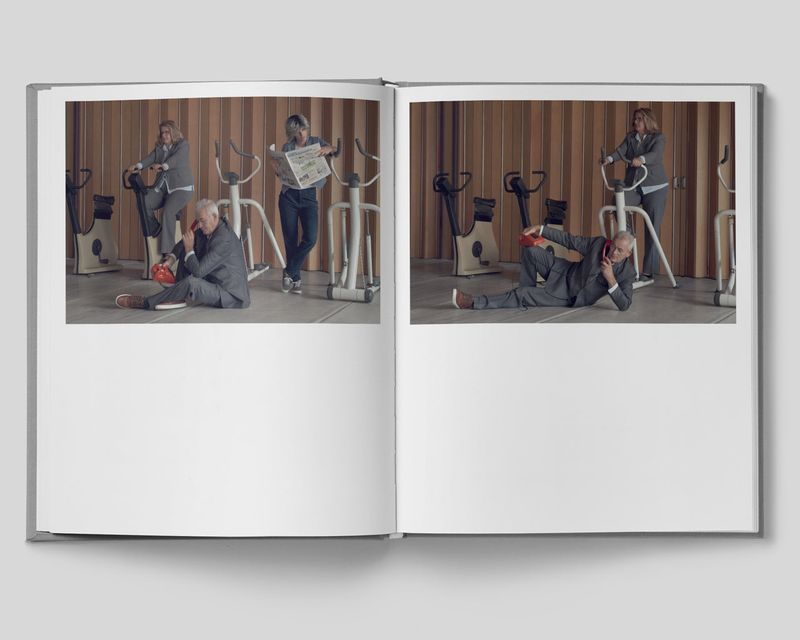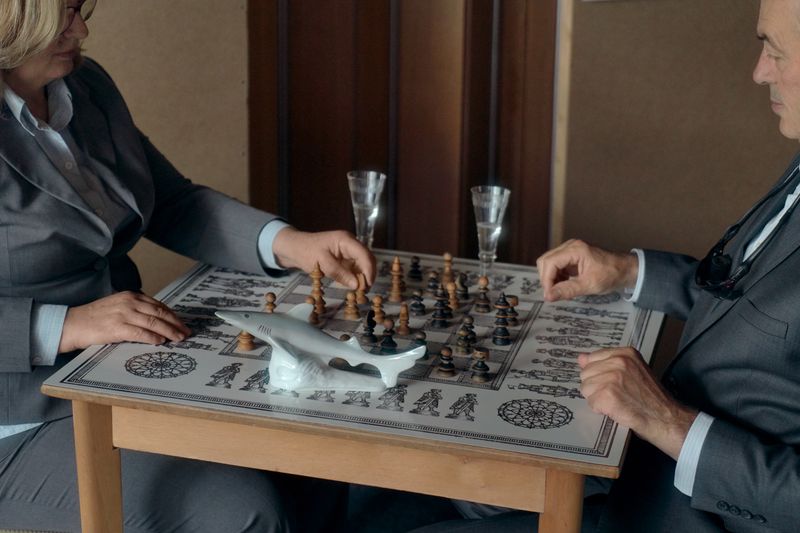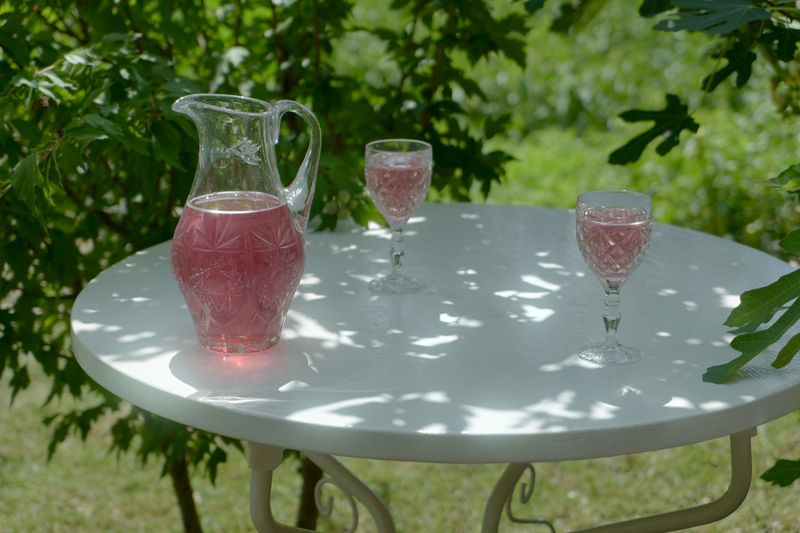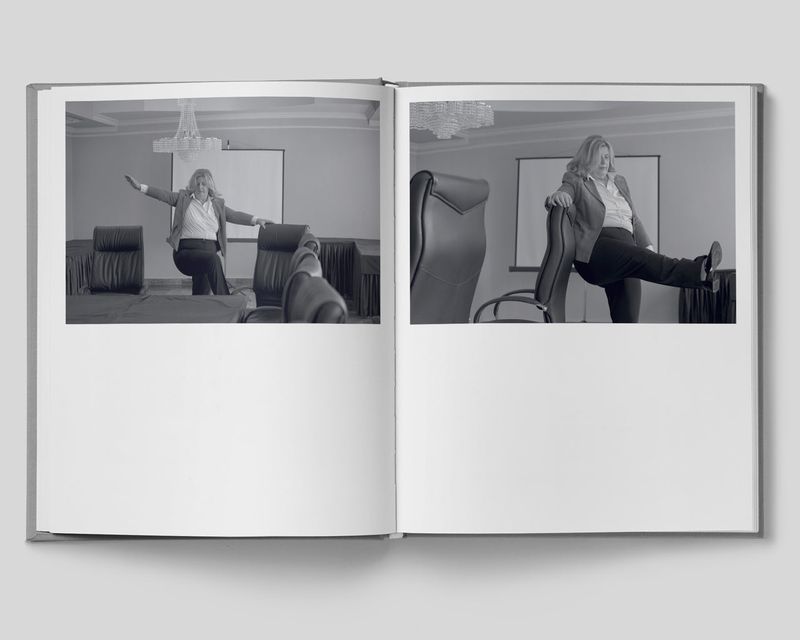Photobook Review: Down The Jade Mountain by Ivo Sekulovski
-
Published9 Jul 2024
-
Author
Somewhere in between surrealism and a coming-of-age, unsettling novel from another world, Down The Jade Mountain reckons with a home, Macedonia, and the constant negotiations of its restless identity.
Clusters of objects lie on a table. Old porcelains, a Gaviscon bag. Butter, a microphone, a porcelaine shark. A formally dressed couple moves awkwardly in an empty room. They might be dancing, they might be chasing each other. Their bodies are suspended, seeking for balance.
“I felt this crisis of belonging” Ivo Sekulovski says. “Half of my life I’ve lived in Macedonia, half of my life in Italy. I don’t feel I belong here, neither there, and it’s all about this. I had gone far away, and detached myself from my origins. I was in between, somehow I was nowhere”. Down The Jade Mountain is the embodiment of an identity crisis, personal as much as it is national. As in a movie whose timeline got twisted, we move back and forth within a set of locations - an office room, a gym, a garden, a car, a kitchen table. This world is inhabited by two characters wearing a suit - they are Sekulovski’s parents. Props come and go, each time drawing a different picture dense with symbols we might, probably unsuccessfully, want to unpack. Everything seems to be running in circles, though nothing comes back as it was before. It is a slow, persistent metamorphosis.
“The culture and the way I grew up was very mixed, and the history of the Balkans in general is quite turbulent”, says Sekulovski, “also because of it being so recent - Macedonia got independent in 1992, and in 2019 it changed its name from FYROM (Former Yugoslav Republic of Macedonia) to North Macedonia. Things are still to be figured out, nothing is settled”. Turbulence and unsettlement materialize in his ambiguous images, which don’t accept to stand still - even when they capture porcelains or packaged food. Some force, some restlessness within them can remind us of adolescence. Of learning how to look at one’s reflection in the mirror, performing identity until it becomes palpable. Seen this way, Down the Jade Mountain is some sort of visual, uncanny Bildungsroman. A story whose characters - a family, a country - are learning how to be, and coping with how to change. Where nothing is stable, but always in-becoming.
Sekulovski’s mum is on her knees in the middle of a field. Our best guess might be she’s looking for something amidst the grass. “That’s where her grandparent's house was, which was then destroyed. She’s searching for a memory, for remains, on that land where she grew up”. She’s wearing dark sunglasses and her suit. “The aesthetic of my country is very different from what I’m showing”, he says. “There is a lot of folklore, which people are always including when trying to represent Eastern Europe more in general. I tried to avoid it. My parents work in economics and finance, my mother is a university teacher - the way I’ve seen them all my life was in these suits. So I decided that in whatever kind of situation, they would appear dressed like that. These are my parents for the way I know them”.
Office aesthetics merge with plates filled with food, lush gardens and traditional dances. We are immersed in an everyday where something surreal was introduced. Now it blended in, and we can’t really distinguish it from anything else anymore. All is contemporary and all is ancient at the same time. It is an eerie myth of becoming and passage, and as in any mythology, its symbols are strange and twisted. They wait for us to fill them with meaning. Sekulovski’s dad is lying in a car with a briefcase; instead of paperwork, there is fishing gear inside. As everything mixes up, new forms arise. “I’m not really interested in how people decode my images”, Sekulovski says, “I’m more interested in what the images can trigger in their minds. Decoding, even for me, is sometimes difficult: this place is hard to fully understand”. His subtle and disquieting magical realism is reminiscent of Yorgos Lanthimos’ movies. “Lanthimos and I come from very close regions”, he says. “Both Macedonia and Greece have an ambiguous, strange energy, at times they feel like another world”.
Sekulovski’s myth is that of a place that “longs to be western, but is still very conservative”. Of a broader region, former Yugoslavia, that “used to be one country and still feels like one to the older generation”. The objects Sekulovski brings together on the kitchen table come from Macedonia as well as from Bosnia, Greece, or Turkey. The table is the place where they meet and merge. It is a symbol that traverses the whole narrative, a terrain for cultural mix as well as for transition. “My parents’ job was on a table. Folkloristic dances, which you see in some of the archival images, involve people dancing on tables. And at the same time, talking about the identity of my country, which changed name so many times, and about my own identity and the place where I belong… The table is where negotiations happen. It’s where you sign contracts, it is where you change names”.
Among all the questioned, fleeting identities, Sekulovski points at that of photography, too. “I wanted to examine what photography is today”, he says. “Every now and then, in the book there are 3D renders. Photographs that never existed, that I created from zero. They blend so naturally you don’t even notice”. Down The Jade Mountain makes archival images, 3D renders, and performative, staged photographs meet and prove their agency - on those who will look at them as much as on the people who made them. They prove their ability to materialize and articulate thoughts when printed on paper, and to shake things up in their making. “After this project, the way I’ve seen my parents somehow changed, we created a different connection” Sekulovski says. “These three years were really a teaching and learning process. My parents never knew what photography meant, in general but especially to me. Working together was making them understand that. It was making them understand who I am and what I do. When the work finally came all together, my mother told me: ‘Ivo, I have never seen you happier’. She told me: 0You were like flying while shooting this. And I had never seen you like that’. She finally understood and this made me cry, somehow”.
--------------
Down the Jade Mountain is published by Art Paper Editions
22 × 27 cm, 80 p, ills. colour, hardcover
ISBN 9789464775815
design: Jurgen Maelfeyt
edition of 500
--------------
All images © Ivo Sekulovski
--------------
Ivo Sekulovski (b. 1992, Ohrid, North Macedonia) is a visual artist using photography to investigate the notions of culture, territory and identity, while addressing the ideas of absurdist theatre and ambiguity, often altering objects’ function and their purpose. His oeuvre lies between the realms of observational and staged photography, the real and virtual.
Camilla Marrese (b.1998) is a photographer and designer based in Italy. Her practice intersects documentary photography, design for publishing and writing, aiming for the expression and visual articulation of complex issues.

